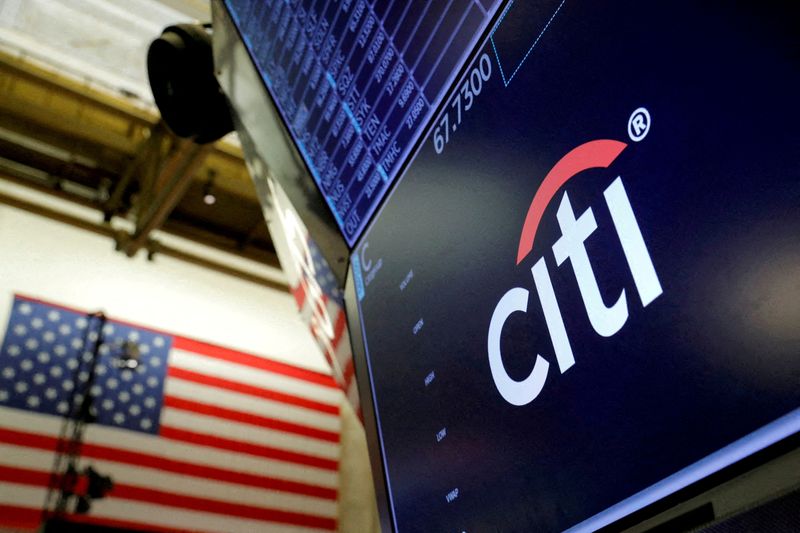By Tatiana Bautzer
NEW YORK (Reuters) -Citigroup CEO Jane Fraser told shareholders on Tuesday that U.S. consumers are becoming more cautious with their spending and making smaller purchases.
U.S. borrowers earning lower incomes are increasingly struggling to keep up with loan payments, prompting banks to become more cautious about issuing credit cards and car loans.
"Consumers remain healthy and resilient," Fraser said at the bank's annual meeting on Tuesday. "But we are seeing them more cautious in the U.S. and more discerning in their spending patterns."
Affluent customers account for almost all spending growth, while consumers with lower credit scores are spending less, she said. Meanwhile, borrowers' delinquency rates have risen above pre-pandemic levels on all loan categories, except mortgages, Fraser added.
While 85% of Citi's credit card clients are prime borrowers with high credit scores, Fraser said the lender was keeping an eye on delinquencies amongst low-income households, as well as debt levels and unemployment in the months ahead.
Shareholders attending the virtual annual meeting approved all of Citigroup's management proposals, including on executive compensation. But Chairman John Dugan had to defend the board's decision to award Fraser a 6% pay bump to $26 million for 2023.
In response to a shareholder question about Fraser's pay rise while employees lost their jobs, Dugan cited Fraser's transformation efforts and the bank's increased return on equity.
The CEO's compensation is aligned with shareholder interests because most of it is paid in equity linked to performance, Dugan said. Fraser's pay is also lower than that of peers, he added.
Fraser has streamlined Citi's structure in an effort to increase profits. She has sold overseas retail businesses and reduced headcount by 7,000 employees. Investors have rewarded her efforts with a more than 20% boost in its share price this year, outperforming rivals JPMorgan Chase (NYSE:JPM) and Bank of America.
Still, she faces major hurdles to boost returns and catch up with rivals, including regulatory problems, lackluster earnings and an unsettled workforce.
CHALLENGES AHEAD
When asked by a shareholder about employee morale on Tuesday, Fraser acknowledged the challenges posed by the reorganization and layoffs.
"We will be a smaller firm and we will need fewer people in roles, and we are going to manage through attrition and support our colleagues as they go through a change," Fraser said. "Citi has become an easier place for our people to work. We believe these benefits will have a positive impact on morale as our organization focuses on supporting our clients."
Separately, Fraser explained Citi's reasons for exiting the business of financing U.S. municipalities.
"Unfortunately, the economics of the business are no longer viable, given our commitment to increase our overall shareholder return," she said. The bank will keep funding infrastructure projects and will be the largest lender for affordable housing, she added.
Shareholders asked extensively about diversity initiatives and climate lending, including the bank's goal of reaching $1 trillion in sustainable finance.

The company screens clients for environmental risks and its sustainable principles are good for business, Fraser said.
Investors rejected all shareholder proposals, including those on diversity in hiring and the additional screening of the bank's activities for their impact on the environmental or indigenous people.